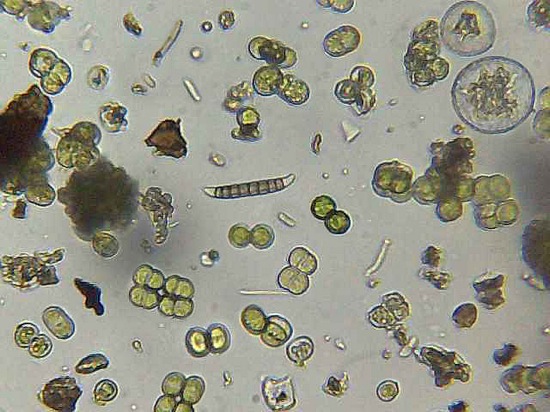Good news: Growing algae for biofuel could allow us to replace almost half our oil imports! Bad news: It would take a ginormous amount of water and land. Better news: Even if we plan the algae farming in a water-conscious, environmentally responsible way, we can still replace 17 percent of imported oil with biofuel. That's a pretty good compromise!
Algae makes for a better biofuel alternative than corn — it can produce 80 percent more oil per hectare, it uses roughly the same amount of water, and using it for fuel doesn't mean taking food out of anybody's mouth. Plus, it can basically eat carbon emissions and water pollution. It does take a lot of water to grow the algae, between 8.6 and 50.2 gallons per mile driven on the fuel (compared to 0.09-0.3 gallons for conventional gas). But a new study finds that if we engage in smart algae farming — growing it in sunny and humid climates where algae is inclined to bloom anyway — we can still replace a pretty good chunk of the nation's oil imports with algae-derived biofuel. Growing algae in a less land- and water-conscious way would generate more oil, but doing things in a not-environmentally-conscious way to generate oil is kind of what got us into this fix in the first place.



